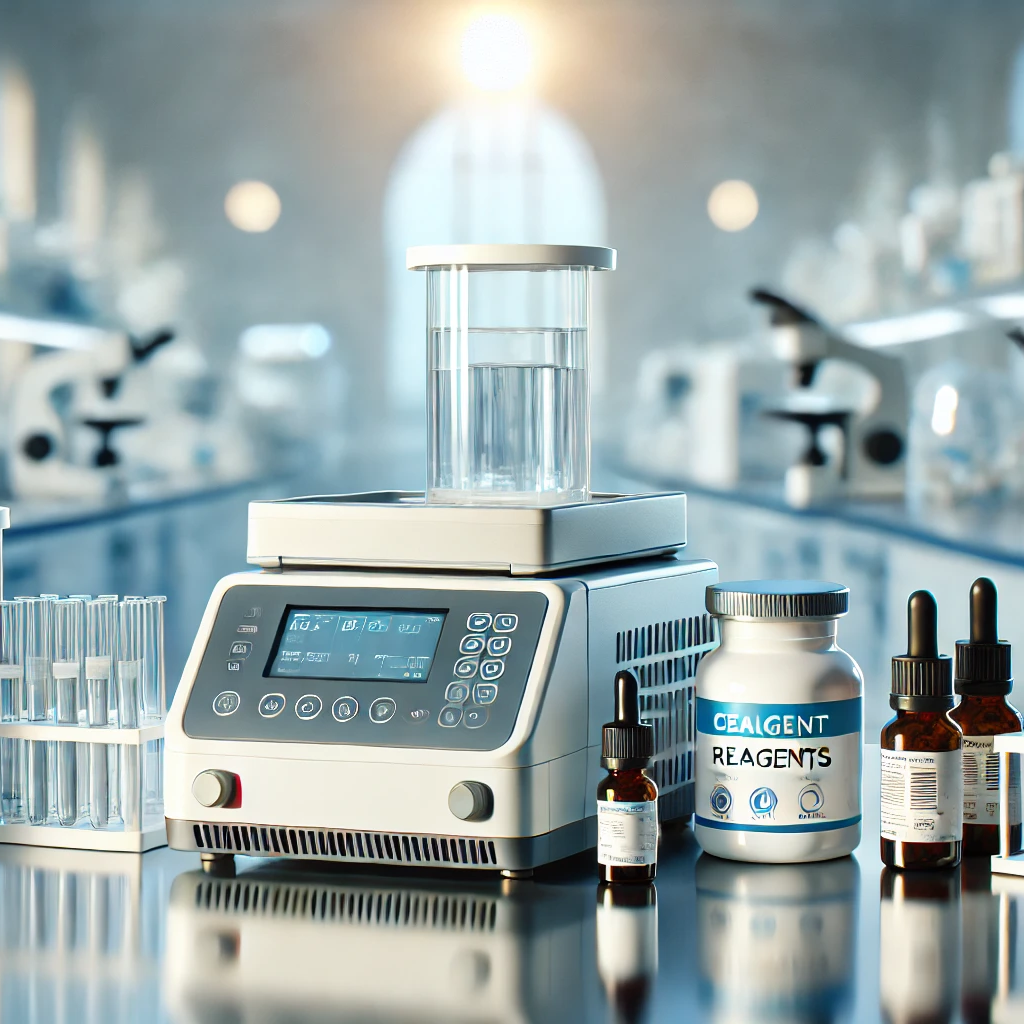Product Description
TMS(PEG)12 Branched Methyl-PEG-NHS-Ester Reagent Thermo Scientific Pierce TMS(PEG)12 is a three-branched, polyethylene glycol compound (3 times 12 PEG units) activated as an NHS ester for covalent pegylation of primary amines (e.
g., lysines) on proteins or assay surfaces.
Features of TMS(PEG)12:
• NHS-activated for efficient PEGylation of primary amines at pH 7-9; reaction of NHS-ester group results in formation of stable, irreversible amide bonds
• Pure compound with defined structure and molecular weight, ensuring reproducible protein-modification effects
• PEG spacer provides unique advantages, including increased stability, reduced tendency toward aggregation and reduced immunogenicity
• Easy-to-follow instructions increase the likelihood of a successful outcomeTMS(PEG)12 is the abbreviation for a branched trimethyl (TM) and succinimide ester (S) derivative of polyethylene glycol (PEG) for efficient and specific modification of primary amines. Each methyl-terminated PEG (mPEG) branch contains 12 ethylene glycol units. The three branches are attached to a 4-unit PEG stem that contains an amine-reactiveN-hydroxysuccinimide (NHS) ester at the distal end. The NHS ester is spontaneously reactive with primary amines (—NH2), providing for efficient PEGylation of proteins, peptides and other amine-containing molecules or surfaces.
PEGylation Applications:
• PEGylate amine surfaces
• Add inert mass to proteins, immunogens, drug compounds and probes
• Improve solubility (decrease aggregation) of proteins or peptides without affecting function
• Protect proteins from proteolysisWhy PEGylate a protein or peptide?PEG-containing reagents have been used to modify proteins to provide specific advantages. Protein PEGylation can improve the stability of the modified protein, protect it from proteolytic digestion, increase its half life in biological applications, mask it from causing an immunogenic response, decrease its antigenicity or potential toxicity, improve its solubility, diminish the potential for aggregation, and minimize interference for bothin vitroandin vivoapplications. Polyethylene glycol, also called polyethylene oxide (PEO), has these effects because it is nontoxic, nonimmunogenic, hydrophilic, water soluble and highly flexible.
TMS(PEG)12 is specially synthesized as a homogeneous compound of discrete chain length and defined molecular weight. By contrast, typical preparations of PEG compounds are heterogeneous mixtures composed of multiple chain lengths and a range of molecular weights.
Form: Solid
Label Type: Polyethylene Glycol (PEG), Blocking Groups
Quantity: 1 g
Reactive Moiety: Active Ester, Succinimidyl Ester, NHS Ester
Solubility: Water
Chemical Reactivity: Amine
Product Type: NHS-Ester Reagent
Spacer: 12 ethylene glycol units
Unit Size: Each
Order Guidelines
1. Price & Stock Available on Request. Click to send email to: service@iright.com
2. Please DO NOT make payment before confirmtaion.
3. Minimum order value of $1,000 USD required.
4. 100% prepayment required.
Collaboration
Tony Tang
Email: Tony.Tang@iright.com
Mobile/WhatsApp/Wechat: +86-17717886924
